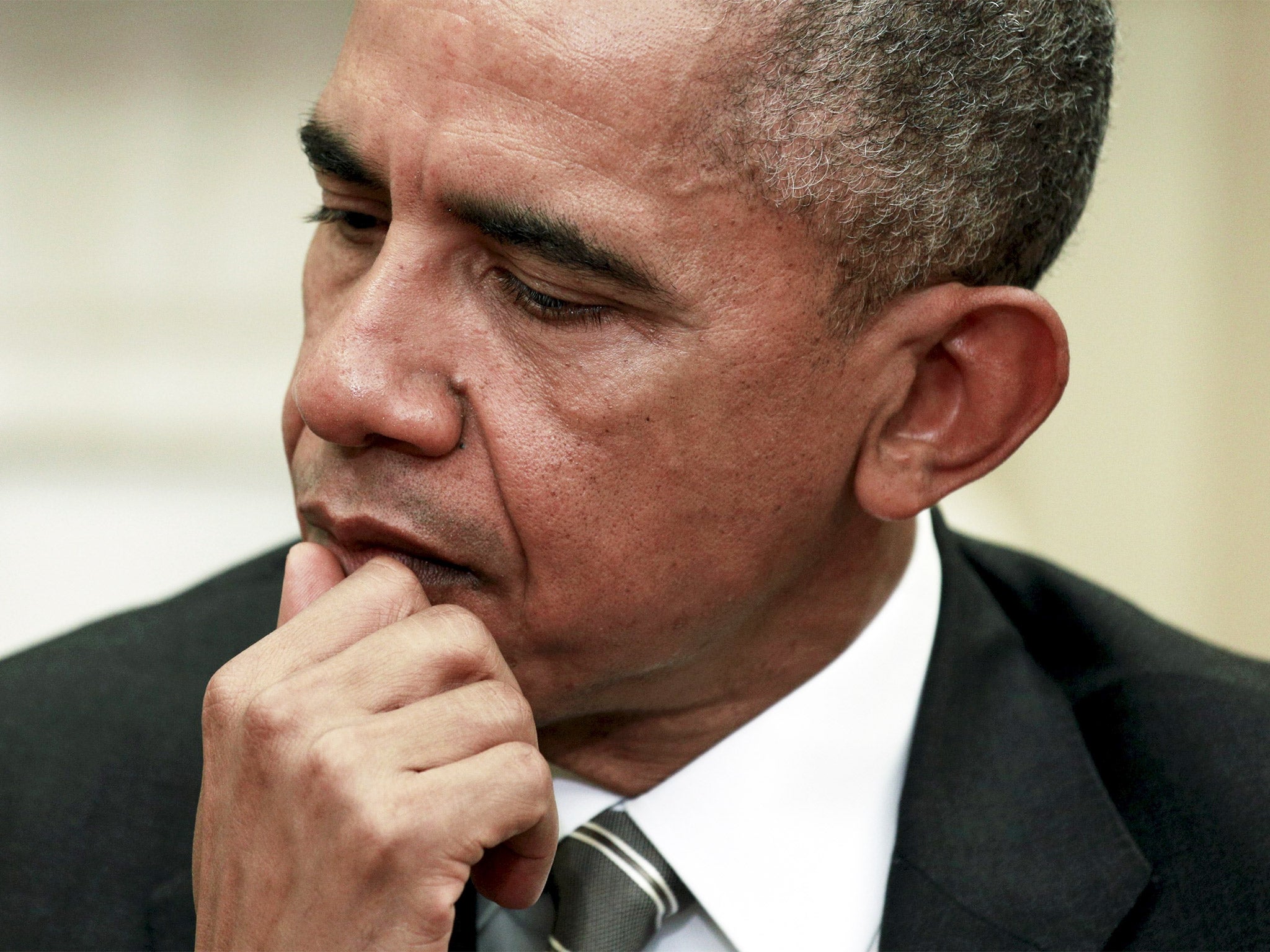Kunduz hospital bombing: President Obama apologises for US air strike that killed 12 aid workers and 10 patients
Médecins Sans Frontières has called for an independent investigation in to the attack

Nearly five days after a US air strike killed 22 people at a hospital in Afghanistan, US President Barack Obama has apologised to the medical aid charity Médecins Sans Frontières (MSF) for what the White House described as a “terrible, tragic accident”.
MSF has called for an independent investigation into the attack on its hospital in Kunduz, to determine whether a war crime occurred, as Taliban forces and Nato-backed Afghan government troops continue to battle for control of the strategic northern city.
White House press Secretary Josh Earnest said that Mr Obama had also called Afghanistan’s president Ashraf Ghani to offer his condolences. The airstrike killed 12 MSF staffers and 10 patients, including three children; several victims were burned alive in their beds.
The Pentagon has already promised its own investigation into the deadly incident but, speaking at a press conference in Geneva, MSF international president Joanne Liu said the organisation “cannot rely on only internal military investigations by the US, Nato and Afghan forces.”
Citing the inconsistencies in the US and Afghan accounts of Saturday’s air strike, Ms Liu called for a fact-finding mission to Afghanistan by the International Humanitarian Fact-Finding Commission, an independent organisation based in Switzerland and made up of officials, legal, experts and doctors from nine European nations including the UK. Ms Liu said the strike “was not just an attack on our hospital, it was an attack on the Geneva Conventions. This cannot be tolerated.”
On Tuesday, the commander of US and Nato forces in Afghanistan, General John Campbell, offered a fourth different account of the incident in as many days. Testifying before a US Senate panel, Gen Campbell admitted it was US special forces who had called in the air strike – not, as previously claimed, their Afghan allies. The attack came from a US AC-130 gunship, which repeatedly targeted the MSF hospital. “We would never intentionally target a protected medical facility,” Gen Campbell said, insisting the buildings were “mistakenly struck”.
The US air strikes and their civilian death toll appear to give the lie to the Obama administration’s claim that the 14-year war in Afghanistan is winding down. Following the incident, MSF withdrew from the hospital facility, and other aid groups also suspended operations in Kunduz.
Taliban fighters seized control of the city, the capital of the province of the same name, for three days last week. The government launched its counter-offensive on Thursday, and troops have since fought intermittent running battles with the insurgents, who have launched attacks on security forces from the rural outskirts of the city.
We would never intentionally target a protected medical facility
Kabul officials said that Afghan troops had regained control of the main square in Kunduz, which traded hands several times during the fighting. Qamirudin Sediqi, an adviser at the country’s Public Health Ministry, said medical supplies were now being delivered to Kunduz airport aboard military flights. Emergency relief supplies of food and medicines had not been able to reach Kunduz earlier, leading to dire shortages, residents and medical officials said.
Authorities still had no precise casualty figures for the past days since the Taliban blitz on Kunduz, though the number of dead and wounded is believed to be in the hundreds. Mr Sediqi said local hospitals had received around 60 bodies so far, with about 800 wounded since the fighting began with the Taliban assault of 28 September.
Additional reporting by AP
Subscribe to Independent Premium to bookmark this article
Want to bookmark your favourite articles and stories to read or reference later? Start your Independent Premium subscription today.

Join our commenting forum
Join thought-provoking conversations, follow other Independent readers and see their replies